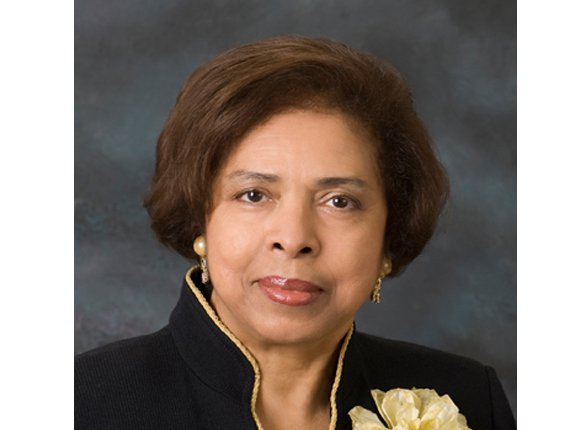We’ve got the power
8/13/2016, 8:29 a.m.
E. Faye Williams
It has been said that if a lie is told loudly and often enough, it will stand as the truth. Just as many people believe that no lie can stand the test of time and that truth will ultimately prevail. Recent decisions from several courts in different locations have confirmed my belief that no lie can live forever.
When the U.S. Supreme Court struck down Section 5 of the 1965 Voting Rights Act, proponents of civil and voting rights cautioned against the potential for reinstatement of legal impediments to equitable voting practices.
Recently, voter identification and registration laws in Texas, Kansas, Wisconsin, North Dakota and North Carolina have been challenged. Some of these laws have been overturned; others have been returned to lower courts or legislatures for corrective action. Those who hold the right to vote sacrosanct welcome the abolishment and/or suspension of their enforcement. Light is shed on the fallacy of “voter fraud laws and the truth of their predictable outcome of discriminatory voter suppression.”
What we’ve seen is blatant Republican partisanship in passing laws that have the effect of diluting the strength of non-white voters. This tactic assures the election of candidates who, otherwise, could not be elected on the merits of their policies or positions. Instead, Republicans suppress the votes of those who likely oppose their candidates. Below is a brief overview of these court decisions:
Kansas — Residents were required to show proof of citizenship. Courts waived that requirement for federal elections, but Kansas continues the appeal for proof of citizenship prior to registration or voting in state and city elections. Recent court rulings require Kansas to count the votes of those who didn’t show proof of citizenship before registration.
North Dakota — No photo ID is required to register. But to vote, one must present a photo ID. A federal judge blocked the law requiring an ID to vote, noting that 25 percent of eligible Native Americans did not possess “proper” ID. He said, “No eligible voter, regardless of their station in life, should be denied the opportunity to vote.”
Wisconsin — This voter ID law has been challenged and debated. Although still enforced, a U.S. district court judge struck down several parts of this strict law, reinstated provisions for early voting, eliminated certain residency restrictions, recognized expired student IDs and struck down a ban on emailing absentee ballots. He stated that “... a preoccupation with mostly phantom election fraud leads to real incidents of disenfranchisement.”
Texas — A federal appeals court ruled that Texas’ voter ID law had a discriminatory impact on voters and ordered a lower court to provide a “fix” before November’s elections.
North Carolina — The 4th U.S. Circuit Court of Appeals was most critical of the evil intent of oppressive laws which made voting impossible for some and unnecessarily difficult for others. It noted that data was requested to identify black voting practices and that the state legislature enacted laws to specifically suppress black voting. The court said the law restricted voting and registration in five ways, all of which disproportionately affected African-Americans.
The lesson we take from these rulings is if the right to vote weren’t valuable, no one would try to take it. Fannie Lou Hamer, Amelia Boynton, John Lewis, Dick Gregory, James Orange and all the foot soldiers who endured beatings and constant danger understood that. To Medgar, Martin and others, the right to vote was worth the sacrifice of their lives.
My heart breaks hearing someone ask, “What good does voting do?”
Voting represents the singular time in life when we’re equal. No vote counts more than ours. It can defeat the evil we see in our nation. Not voting dilutes our strength and relinquishes our power to our enemies. We’ve got the power so let’s make it work for us.
The writer is national president and CEO of the National Congress of Black Women.







